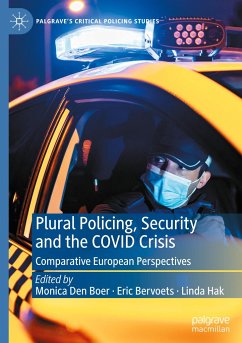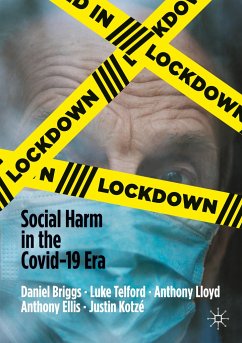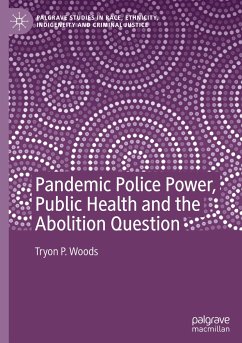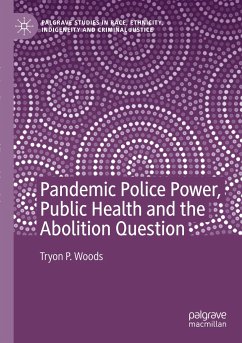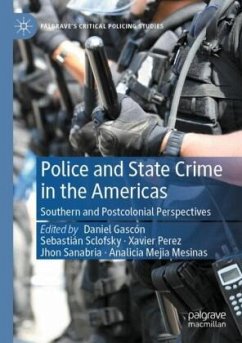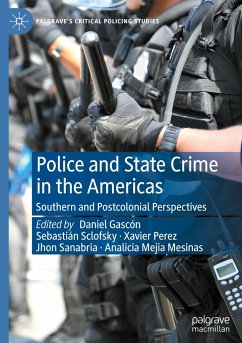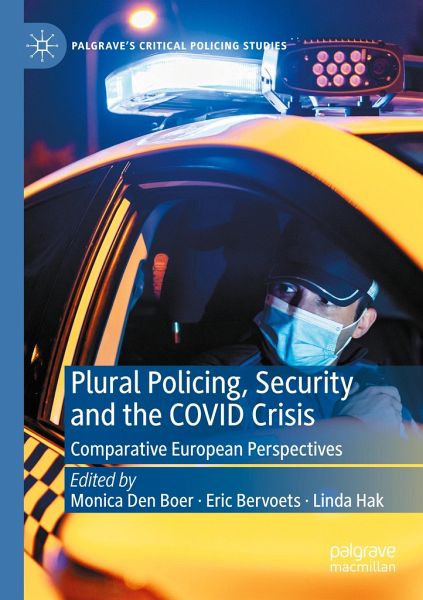
Plural Policing, Security and the COVID Crisis
Comparative European Perspectives
Herausgegeben: Den Boer, Monica; Bervoets, Eric; Hak, Linda
Versandkostenfrei!
Versandfertig in 6-10 Tagen
98,99 €
inkl. MwSt.

PAYBACK Punkte
49 °P sammeln!
This book critically examines how countries across Europe have dealt with the COVID crisis from a policing and security perspective. Across the chapters, contributors from different countries examine the data, press coverage, and provide professional observations on how policing, law enforcement, police powers and community relations were managed. They focus on how security and governmental actors often failed to align with the formal scripts that were specifically designed for crisis-management, resulting in the wavering application of professional discretion and coercive powers. Their differ...
This book critically examines how countries across Europe have dealt with the COVID crisis from a policing and security perspective. Across the chapters, contributors from different countries examine the data, press coverage, and provide professional observations on how policing, law enforcement, police powers and community relations were managed. They focus on how security and governmental actors often failed to align with the formal scripts that were specifically designed for crisis-management, resulting in the wavering application of professional discretion and coercive powers. Their different approaches were evident: in some regions police were less dominantly visible compared to other regions, where the police used a top-down visible and repressive stance vis-à-vis public alignment with COVID rules, including the imposition of lockdown and curfews. Some contributors draw on data from the COROPOL (Corona Policing) Monitor which collated data on crime, plural policing and public order in Europe and around the world during the early phases of the COVID crisis. Overall, this book seeks to provide comparative critical insights and commentary as well as a practical and operational understanding of security governance during the COVID-19 crisis and the lessons learned to improve future preparedness.





